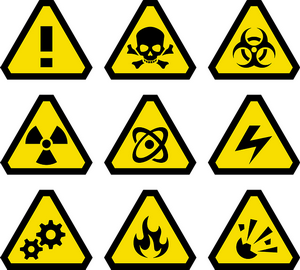I spent all day last Saturday and Sunday parked in front of my computer taking in a Livestream seminar on

autoimmunity. I had to log in at 8:45 and didn’t finish until 5:45 each evening. The first day was all about how ugly and depressing autoimmunity is. There is no cure. There is only management with the goal of creating remissions for as long as possible, but flare-ups always happen. Officially 10% of the population has overt autoimmune disease, but this is a deceptive number because the average person with an autoimmune disease takes 20 years to finally get diagnosed. Our medical system fails profoundly at being able to diagnose this problem. I suspect this is because there is no effective treatment for autoimmune disease. What drugs that have been developed are amazingly expensive and have very dangerous side effects. What doctor wants to be the one to tell a patient “Gee, it sucks to be you. There is nothing we can do.”
Autoimmune disease numbers are also deceiving because autoimmunity has three stages –
Silent – where the body is producing antibodies against the body but there are no symptoms yet.
Reactive – where the antibodies are producing lots of symptoms and attacking tissues, but organ function is still present.
Disease – where 80% to 90% of organ/gland function is lost.

So to get an actual diagnosis of autoimmune disease, you have to be progressed to the point of organ failure. If you have only lost 50% of your brain, or thyroid, or lung, or bones, it is not classed as a disease yet, only reactivity. So how many people have autoimmunity of all types? I have no numbers on this, but I am thinking at least 30% of the population. Just with the disease cases, the financial cost to our health care system is almost 50% higher than the total cost of cancer. Autoimmunity is the disease of the 21st century.
A big part of the problem is just how super complex autoimmunity is. Every patient is different. Autoimmunity involves partially a genetic susceptibility, and partially the impact of literally hundreds of other triggers. It can be triggered by bacteria, viruses, molds, parasites, plastics, chemicals, metals, stress, relationships, bad diet, foods, gut microbiome, head trauma, vaccines, aging, radiation, the list goes on and on. Any form of stress to your body that you are genetically susceptible to caries the potential to set up autoimmunity. Here is where a lot of the confusion comes from. For any one given stressor, most people can fend off the effects and adapt without incident. But some percentage of people will react to each form of stress in a manner that creates autoimmune antibodies against their tissues. There is no way to know what

person is sensitive to what stress. It is so very individual, and scientific medical studies are based on the statistics of population studies, not on individuals. Medical treatment is based on average response treatment protocols. Modern medicine has no system for dealing with a disease that is unique within each patient. Autoimmunity is not one disease, but unique combinations of dozens of dysfunctions within the patient’s body.
That was the Debbie Downer’s first day of the seminar. Day two was “Okay, so what can we do that works?”
Day two was a better day. Interestingly the most powerful interventions that work for autoimmune conditions are lifestyle factors. You are dealing with an immune system that thinks it is under attack and is fighting back by killing anything that looks like an enemy. Unfortunately, it has been tricked into thinking that many self-tissues have become the enemy. How this happens is complex in the extreme, but suffice it to say it happens. To wind down the immune system you have to convince it that you are not under attack. That means finding out what is going on that is stressing the system and stopping it. If that means finding a chronic infection that is revving up the immune system then that is where you go first. Chronic viral infections are good examples.

If the insult is heavy metals or pesticides poisoning the system, then these have to be removed. If you are in a job you hate or a relationship that stresses you out, those need to go. Maybe you live in a house with mold issues and you are sensitive to molds – get out. We go through the long list of triggers and find any that are a problem for the patient and eliminate the triggers. This becomes a big issue with diet. Many foods serve as triggers. The most common are gluten and casein (grain and dairy proteins). Most autoimmune patients have to eliminate these from their lives. Many other foods can also serve as triggers, such as nightshades (potatoes, tomatoes, and peppers), and lectin-containing foods. Food colorings and other food chemicals are a common problem for many patients. Likewise, many of the chemicals used in cosmetics and personal care products are a big problem. BPA is another common trigger for autoimmune disease, so no more putting plastic tops on your Starbuck’s coffee. Don’t touch the receipts either as they have BPA on them. Unfortunately, the replacement chemicals they have come up with to get rid of BPA are proving to be even worse.

So that is part of the lifestyle treatment – getting rid of triggers. What else is vital for promoting remission of autoimmune? The top of the list is sleep. You must be able to get good quality sleep. If you have bladder issues or prostate issues that get you up several times a night, those must be taken care of. If you wake up in the middle of the night, this is usually because of low blood sugar. Blood sugar is another vital lifestyle factor that has to be corrected. If you gain energy after a meal or lose energy after a meal, you have blood sugar issues. These need to be addressed. Insulin resistance or hypoglycemia both trigger inflammation and promote autoimmunity. Another big help with autoimmunity is proper exercise. Inactivity directly triggers autoimmunity. You need to move regularly, but in a form that does not stress the body. We are trying to decrease stress on the body. Exercise needs to be of a type that will not make you sore the next day.
The name of the game is lowering stress on the body, and that includes the mind and emotions. Regular meditation or prayer is a great help. Spending time regularly out in nature is also a big help. As I mentioned before, you need calming supportive relationships. You can’t tame a flareup if you are under negative stress at work or at home. Positive stress is helpful, such as doing things that fulfill your sense of purpose in your life.

Eating a diet that promotes wide diversity in your gut microbiome is very helpful in down-regulating autoimmune flareups. That means you need to eat a wide diversity of plant foods that contain fiber. Gut bugs live on fiber, so you want to eat as many different vegetables as possible, avoiding only those that cause you symptoms. Fermented veggies are a good help as they are already growing the good guy gut bugs. There are many different nutrients that help the gut as well as help moderate the immune system. Vitamin D is probably the most important as it supports the formation of T-reg cells, which help dampen the inflammatory fires in the immune system. Get a blood test of your D levels and make sure they are over 50. 70 to 80 is ideal for autoimmune patients. Other nutrients generally need some individual guidance from your health practitioner who is trained in dealing with autoimmune issues.
A last tidbit from the seminar is recent evidence that CBD’s are very helpful with calming down the overactive immune system. Natural endorphins formed by your

body when you are happy also do this, so happiness is part of the autoimmune remedy. The biggest factors that impact autoimmune are well within your grasp. They are lifestyle factors that may be challenging because they involve change, but it was doing your old lifestyle that created the problem in the first place. Positive change is the essence of calming it all down.
Take care,
David
